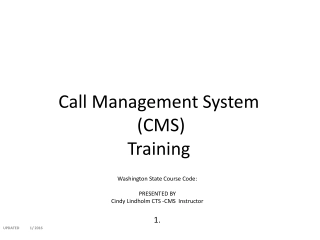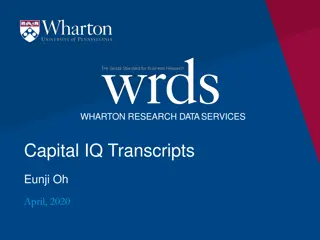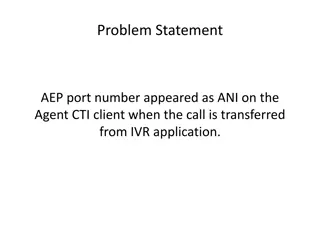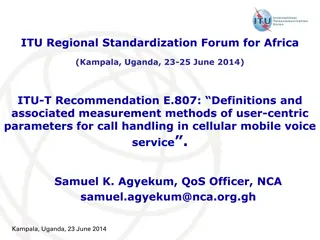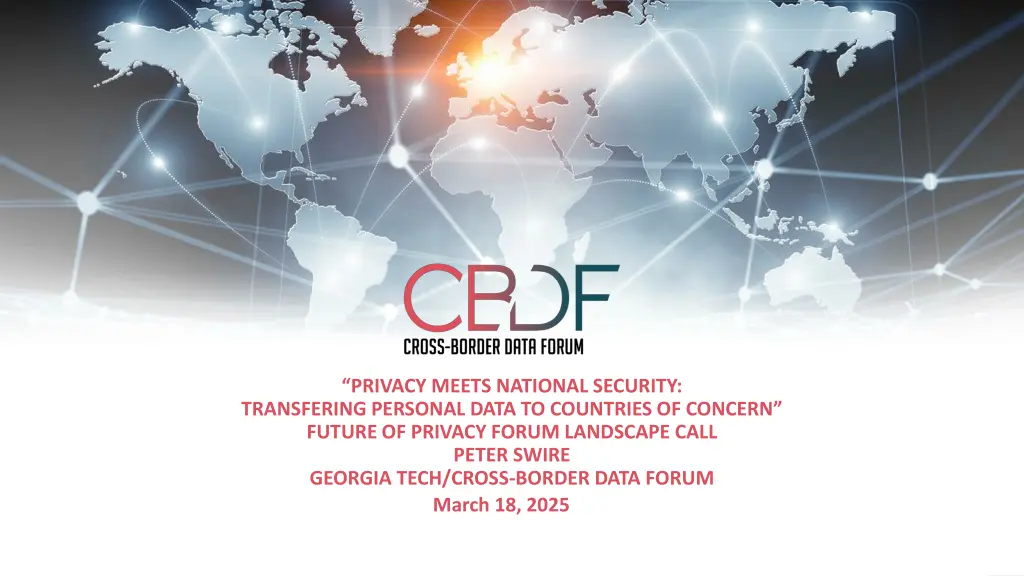
Future of Data Policy: Privacy, National Security, and Cross-Border Data
Explore the intersection of privacy, national security, and data policy in the context of transferring personal data to countries of concern. Delve into the proposed frameworks and models for assessing U.S. data policy towards nations like China, considering the implications for data flow, privacy protection, and national security.
Download Presentation

Please find below an Image/Link to download the presentation.
The content on the website is provided AS IS for your information and personal use only. It may not be sold, licensed, or shared on other websites without obtaining consent from the author. If you encounter any issues during the download, it is possible that the publisher has removed the file from their server.
You are allowed to download the files provided on this website for personal or commercial use, subject to the condition that they are used lawfully. All files are the property of their respective owners.
The content on the website is provided AS IS for your information and personal use only. It may not be sold, licensed, or shared on other websites without obtaining consent from the author.
E N D
Presentation Transcript
PRIVACY MEETS NATIONAL SECURITY: TRANSFERING PERSONAL DATA TO COUNTRIES OF CONCERN FUTURE OF PRIVACY FORUM LANDSCAPE CALL PETER SWIRE GEORGIA TECH/CROSS-BORDER DATA FORUM March 18, 2025 1
Overview Swire background Sacks & Swire article on models for data policy U.S./China Big picture on U.S. data policy toward China Key definitions under the EO/rule Thoughts on the new administration and China data policy 2
Swire Background Currently: Professor, Georgia Tech School of Cybersecurity & Privacy Founded Cross-Border Data Forum (2018) Co-author Samm Sacks is a Senior Fellow at CBDF, plus Yale, New America Senior Counsel to Alston & Bird, LLP (2014 present) Senior Fellow, FPF (2010 present) Previously: Professor since 1990 s, when not in government Chief Counselor for Privacy, OMB (1999-2001) Special Assistant to the President for Economic Policy (2009-2010) Member, President Obama s Review Group on Intelligence and Communications Technology (2013) national security and privacy 3 3
Assessing U.S. Data Policy Toward China: A Proposed Framework Sacks & Swire (July, 2023) Four models: Digital Free Trade Model Blocking Adversaries Model Privacy Law Model Data Allies Model Encourage free flow of data, especially with rule-of-law democracies Potentially limit flows of data to adversaries or other nations that don t protect privacy and human rights Goals both reinforce and conflict with each other Many assume free trade in tension with national security However, successful U.S. trade has national security advantages: Soft power advantages from successful U.S. trade, including mindshare in 3d countries Imagine if U.S. cloud providers were blocked from those markets, and most of the world uses Chinese cloud providers Access to data such as under FISA 702 4 4
National Security, Data, and Other New Laws The intuition: risky to national security if adversary nations have access to sensitive data of Americans Duke data broker study data brokers sell precise geolocation data to track military and other personnel for a few cents/person If you were a member of Congress comfortable if adversary nations can track U.S. military personnel? Sensitive data to adversary nations: Intelligence advantages they learn about U.S. No similar U.S. visibility about Russia/China individuals Counter-intelligence advantages they learn about U.S. actions such as spies Influence operations blackmail etc. using the data 5
Recent U.S. Legal Responses to China Numerous initiatives Cranes in ports Software in electric cars EO 14117 to limit bulk data sales to foreign adversaries (2/24) NPRM issued 10/24, Final rule 1/25, takes effect 4/25; Enforced by DOJ Swire/Sacks, Limiting Data Broker Sales in the Name of U.S. National Security: Questions on Substance and Messaging (Lawfare Feb 2024) These bulk sales are another reason for U.S. to pass a general privacy law New law: Protecting Americans Data From Foreign Adversaries Act (4/24) Passed 500-0 in House, never got a mark-up in either chamber Swire, White Paper on Clarifying Definitions in the Protecting Americans Data from Foreign Adversaries Act of 2024 (May 2024) Definitions broad, apply to sensitive data of one U.S. individual to China Enforced by FTC 6
Dual Use Technologies, Data, and Social Media Dual use technologies both military & civilian uses Historically, fighter jet technology Today, treat personal data online as a dual use technology? If so, potentially broad limits on transfers of personal data to China and other countries Zweiful-Keegan: The beginning of the end of the free flow of data Regulation of data for national security purposes, not protecting individual rights CBDF webinar, posted www.crossborderdataforum.org, on When Should Personal Data Be Treated as a Dual Use Technology Current research project with Samm Sacks, Tsai China Center of Yale Law Paper accepted for Privacy Law Scholars Conference in May, likely post draft If interested in getting draft, to comment, email me at swire@gatech.edu 7
Questions for the Emerging National Security Consensus Will the rules be effective, to block data flows to China and other adversaries? Good idea to create a U.S. National Security Firewall , analogous to Great Firewall of China? Will these rules succeed as a sanctions regime? Sanctions regimes tend to work better to address acute harms, for short period Over time, evasion of sanctions often succeeds How do national security risks compare to national security advantages of U.S. engagement with the world? If U.S. rules apply to transfers through other countries, what happens when data transfers to Latin America, Africa, and rest of the world? Soft power and other national security advantages from continued engagement 8
Another Theme on National Security and Data: AI Great power competition and artificial intelligence Chinese advantages include: Access to data on large population Government scope to mandate data into datasets U.S. advantages include: Commercial AI success and leadership Cloud infrastructure to scale AI A national security lens Personal data as strategic asset for great power competition How would the government like to have a specialized adversary database about actions of US individuals? Should data be retained within the U.S.? For online advertising and social networks? 9
DOJ Rule on Bulk Data Sales: Countries of Concern China Russia North Korea Iran Cuba Venezuela 10
Covered Persons Prohibited transactions with covered persons Does not apply to U.S. persons Broad definition of entities owned or controlled by countries of concern: (1) foreign entities that are 50 percent or more owned by a country of concern, organized under the laws of a country of concern, or has its principal place of business in a country of concern; (2) foreign entities that are 50 percent or more owned by a covered person; (3) foreign employees or contractors of countries of concern or entities that are covered persons; (4) foreign individuals primarily resident in countries of concern. Also, anyone on a prohibited entities list 11
Sensitive Personal Data and Limits for Bulk Precise geolocation data (1000 devices) Biometric data (1000) Genomic (and other omic) data (100) Personal health data (10,000) Personal financial data (10,000) Certain personal identifiers (somewhat narrower than PII) (100,000) 12
Covered data transaction A covered data transaction is any transaction that involves any bulk U.S. sensitive personal data or government-related data and that involves: (1) data brokerage; (2) a vendor agreement; (3) an employment agreement; or (4) an investment agreement. Ban on data brokerage Definitions of bulk vary by category of sensitive data Target any sales (access more generally) of U.S. military or U.S. federal employee data Broad scope of vendor/employment/investment agreements These would be subject to new data security rules, not outright ban 13
Broad definition of data brokerage The program would define data brokerage as the sale of, licensing of access to, or similar commercial transactions involving the transfer of data from any person (the provider) to any other person (the recipient), where the recipient did not collect or process the data directly from the individuals linked or linkable to the collected or processed data. What are key examples of data brokerage under this definition that are different from what state laws or usual practice consider data brokerage ? When does this definition pose the sharpest questions to previous commercial practice? 14
Themes on the big picture We are early days in understanding the intersection of data and national security Possible political alliance for national security and privacy Protect national security often easier to pass the laws; PADFA passed unanimously Regulate the free market often, more difficult to pass laws The new administration Biden largely continued Trump China initiatives Best guess Trump will largely continue Biden s China initiatives No sign that the Bulk Data Rule is being cancelled However, turnover of senior civil servants in DOJ National Security Division, which wrote the Bulk Data Rule Potentially, data will be part of a Trump/Xi grand bargain , and data flows will ease Potentially, greater U.S. decoupling with China, presumably with additional new data limits 15



